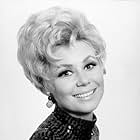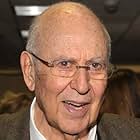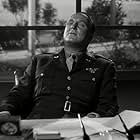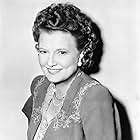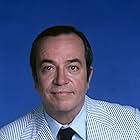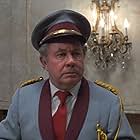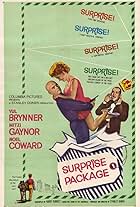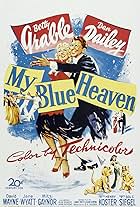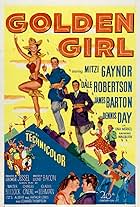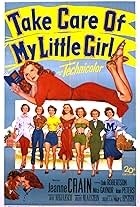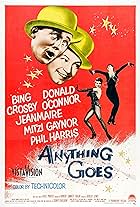Mitzi Gaynor and Niven were quite good as a couple celebrating their thirteenth anniversary. I found the children annoying--especially the son. I found the conflict of the film amusing--Niven, after having consumed too much alcohol, lets it be known to Gaynor's parents that he and their daughter had engaged in relations prior to their marriage. This of course scandalizes Gaynor's parents, especially her mother who feels like a fool for having had a deep heart-to-heart conversation with her daughter (presumably about sex) the night before the wedding.
The other conflict in the film is that Gaynor's parents purchase a television set for the family. Niven deems television detrimental to family life and to people's intelligence and does not want one in the house. A running gag is that Niven keeps ruining the television sets. Anyway, the thing I was most surprised about was the amount of language in the film. While I'm used to 1950s films having more colorful words allowed (the word "hell" or "damn" will be heard once or twice in the film), Happy Anniversary seemed to have more of these words than I'm accustomed to in a film that is still technically in the production code era.
I also found the frank discussion of sex very interesting. At the beginning of the film, Niven and Gaynor's characters clearly sneak off to a hotel for a romantic rendezvous, then there's Niven letting the cat out of the bag about he and Gaynor's pre-marital sex, later, their little girl ends up on television to inquire about her parents' pre-marital sex and how that was negatively affecting their relationship.
There seems to be a recurring problem with films that have one foot in the production code era and one in the budding sexual revolution. They can't really figure out what they are about and wind up having neither the courage nor the quaintness of their convictions on either side. This one is mainly saved by Niven's charm and Gaynor's skill.






